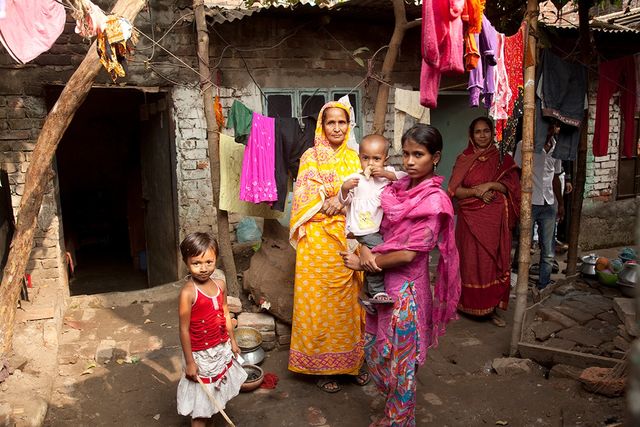For many of us, 2022 is still the stick. Here's hoping it leads to next year's carrot.
With the pandemic entering its third year, we see signs that our hard-earned lessons in global health could lead to changes that transform our health systems for the better, long after COVID

It seems to be a universal feeling: our perception of time has become slightly warped since the onset of COVID-19. I’ll take advantage of that sentiment to share with you my hopes for the new year – and my high expectations for January 2023. Yes, 2023.
We're entering year three of the pandemic, and I expect many of us didn’t imagine we’d be here when we first learned about SARS-CoV-2. Many of us are tired and it can feel – at times – like all that's driving us is the punishing stick. But even if our pandemic fatigue can be exhausting, we're still uncovering reasons to be optimistic. That’s the carrot that, we hope, lies ahead.
COVID-19 has taught us countless lessons. Among them is that we must strengthen our health systems so they can withstand our next global crisis. This was highlighted by our colleagues and partners at India COVID SOS, who have shown how the “power of the people,” of extreme collaboration between India’s private and public sectors, volunteers, and stewards, has delivered bright spots in pandemic response.
But they’re not just India’s lessons. Research from our partners at the Johns Hopkins Center for Health Security, the Thai National Health Foundation, the Rockefeller Foundation, and the Makerere University School of Public Health, presented ahead of the Prince Mahidol Award Conference, shows that Thailand, Costa Rica, and Uganda are just some of the countries that have overcome the challenges of COVID-19, while maintaining essential health services during the pandemic.
We’ve learned a similar lesson from Senegal. The country has gone from notebooks to smartphones, harnessing the power of digital data to effectively contain malaria during the pandemic – no small feat for a country of 16 million that has fewer than 1,200 health posts, centers, or hospitals.
It’s a lesson found in the new digital health tools being deployed in sub-Saharan Africa to fight COVID that are helping patients, especially those in rural areas, obtain quicker health information and diagnoses for other disease, and potentially changing the game for equity in access to care.
And it’s also a lesson imparted by London School of Hygiene and Tropical Medicine Professor Dina Balabanova, co-author of the seminal of book “Good Health at Low Cost 25 Years On,” who celebrates community co-creation of health interventions, as well as the innovation opportunities presented by the pandemic.
For a year that, yes, continues to challenge us with sticks , my hope is that we work on finding more carrots like these. That way, by next January, our hard-earned lessons will have coalesced into changes that transform our global health systems for the better, long after COVID.
